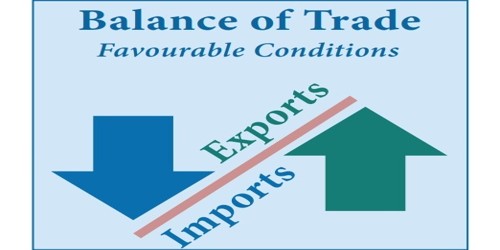
Welcome, millennials! As you embark on your journey towards financial independence, it's crucial to understand the importance of wealth management. Wealth management refers to the process of managing your finances in a way that helps you achieve your financial goals. It involves creating an effective financial plan, making informed investment decisions, and implementing strategies to grow and protect your wealth.
Building a strong foundation for your financial future is essential, especially in today's volatile economic environment. By taking the time to understand the principles of wealth management and implementing effective strategies, you can lay the groundwork for a prosperous and financially secure future.
Key Takeaways:
- Wealth management is crucial for millennials to achieve financial independence and security.
- Building a strong foundation now can lead to a prosperous future.
- Wealth management involves financial planning, investment advisory, asset management, estate planning, retirement planning, portfolio management, tax planning, wealth preservation, and wealth accumulation.
- Seeking professional advice can help you navigate the complex landscape of wealth management.
- By implementing effective wealth management strategies, you can minimize risk and maximize wealth accumulation.
Understanding Financial Planning
Financial planning is a pivotal component of wealth management for millennials. It involves creating a comprehensive roadmap that outlines the steps necessary to achieve long-term financial goals. Financial planning allows millennials to identify their priorities, understand their current financial situation, and create a strategy for the future.
A financial plan can cover a range of topics, including budgeting, debt management, retirement planning, and investment strategy. By taking a holistic approach to financial planning, millennials can develop a clear understanding of their financial picture.
One of the primary benefits of financial planning is that it can help millennials make informed decisions about their money. A financial plan provides a framework for decision-making, making it easier to prioritize expenses and investments. It also helps to minimize risk by identifying potential roadblocks and creating contingency plans.
The Components of Financial Planning
Financial planning involves several key components, including:
- Assessment of Financial Situation: This involves taking stock of current assets, debts, income, and expenses to create a clear picture of one's financial situation.
- Setting Financial Goals: Financial planning involves setting achievable and measurable financial goals, such as saving for a down payment on a house or creating a retirement fund.
- Creating a Budget: Creating a budget involves identifying income and expenses to determine how much money can be allocated to specific goals or investments.
- Investment Planning: This involves creating an investment strategy that aligns with one's financial goals and risk tolerance.
- Risk Management: A financial plan should also include strategies to mitigate risk, such as insurance policies or emergency funds.
By addressing each of these components, millennials can create a well-rounded financial plan that provides a solid foundation for their future.
Working with a Financial Advisor
While it's possible to create a financial plan without professional help, working with a financial advisor can be beneficial. A financial advisor can provide guidance on investment strategy, risk management, and tax planning. They can also help millennials create a long-term strategy that aligns with their financial goals.
When selecting a financial advisor, it's important to choose someone who has experience working with millennials and understands their unique financial situation. It's also essential to ask questions and understand how the advisor is compensated, as this can impact the quality of advice received.
"A financial plan provides a roadmap to achieving long-term financial goals."
Financial planning is an essential component of wealth management for millennials. By creating a comprehensive financial plan that addresses each of the key components outlined above, millennials can develop a clear understanding of their financial situation and create a strategy for the future. Working with a financial advisor can provide additional guidance and support, helping millennials make informed decisions and achieve financial success.
Benefits of Investment Advisory for Millennials in Wealth Management

Millennials often face unique financial challenges when it comes to investing and building wealth. That's why seeking professional investment advisory services as part of a comprehensive wealth management plan can be beneficial. Here are some of the benefits that investment advisory can offer:
- Expertise: Investment advisors have the knowledge and experience to help millennials make informed investment decisions. They can provide insights into the current market trends and offer personalized investment strategies based on each individual's financial goals and risk tolerance.
- Access to a Diverse Range of Investments: Investment advisors have access to a wide range of investment options, from stocks and bonds to mutual funds and alternative investments. This diversity can help millennials build a diversified investment portfolio that can minimize risk and maximize returns.
- Regular Portfolio Monitoring: Investment advisors will regularly monitor a client's investment portfolio to ensure it aligns with their goals and risk tolerance. They will also make adjustments as needed in response to changing market conditions.
- Behavioral Finance Coaching: Investment advisors can provide coaching and guidance on how to avoid common behavioral finance pitfalls and stay on track with long-term financial goals. This can help millennials make more rational investment decisions and avoid making emotional decisions based on short-term market volatility.
- Tax Planning: Investment advisors can help millennials optimize their investment portfolios for tax efficiency. They can minimize tax liabilities and maximize returns through smart tax planning strategies, such as tax-loss harvesting and tax-efficient asset location.
Overall, investment advisory is an essential component of wealth management for millennials. It can provide access to expertise, diverse investment options, and personalized strategies that can help millennials achieve their long-term financial goals.
The Role of Asset Management
In the world of wealth management, asset management plays a pivotal role in optimizing investment portfolios and achieving long-term financial goals. For millennials, having a well-balanced investment portfolio with effective asset management strategies is crucial for both wealth accumulation and preservation.
Effective asset management involves the strategic allocation of investments across a variety of asset classes to minimize risk and maximize potential returns. It also involves ongoing monitoring and adjustment of investments to ensure that they align with the investor's financial objectives and risk tolerance.
Diversification
Diversification is a key aspect of asset management, particularly for millennials, who often have a long investment horizon. By spreading investments across a variety of asset classes, such as stocks, bonds, and real estate, investors can reduce the overall risk in their portfolios. This helps to protect against market volatility and potential losses.
For example, a millennial investor may choose to allocate a portion of their portfolio towards equity investments, which offer the potential for high returns but also carry a higher level of risk. To balance this risk, they may also invest in fixed-income securities, which provide a stable income stream and are generally less volatile than stocks.
Professional Management
Given the complexity of asset management, many millennials turn to professional investment advisors for guidance. Investment advisors can provide valuable insights and expertise on asset allocation, investment selection, and ongoing portfolio management, helping millennials to optimize their investments and achieve their financial goals.
Working with an investment advisor can also help millennials to stay disciplined and avoid making impulsive investment decisions. Advisors can provide a steady hand in times of market volatility, helping to prevent emotionally-driven investment decisions that can harm their long-term financial prospects.
Technology and Asset Management
Technology is also playing an increasingly important role in asset management for millennials. Digital investment platforms, such as robo-advisors, are becoming more popular as investors seek affordable and convenient investment management solutions.
Robo-advisors use sophisticated algorithms to automatically manage investment portfolios, providing millennials with a low-cost alternative to traditional investment advisors. While they may not offer the same level of customization and personalization as a human advisor, they can be an effective solution for millennials who are just starting to build their investment portfolios.
Planning for the Future: Estate Planning and Retirement Planning

For millennials, planning for the future requires more than just saving money. It also means considering important aspects of wealth management such as estate planning and retirement planning. These components of a comprehensive financial plan can help ensure financial security for you and your loved ones.
Estate Planning
Estate planning involves determining how your assets will be distributed after you pass away. It's essential to plan ahead to ensure that your wishes are carried out and that your loved ones are taken care of. Some key components of estate planning include:
| Component | Description |
|---|---|
| Will | A legal document that specifies how your assets will be distributed after you die. |
| Trust | A legal arrangement that allows you to transfer assets to a trustee who manages them for the benefit of your chosen beneficiaries. |
| Power of Attorney | A legal document that designates someone to make financial and legal decisions on your behalf if you become unable to do so. |
By creating an estate plan, you can minimize taxes and ensure that your assets are passed on in a way that aligns with your wishes and values.
Retirement Planning
Retirement planning is another crucial aspect of wealth management for millennials. It involves determining how much money you will need to retire comfortably and taking steps to save and invest accordingly. Some key components of retirement planning include:
- Calculating your retirement savings needs
- Investing in tax-advantaged retirement accounts
- Creating a diversified investment portfolio
- Monitoring and adjusting your plan over time
Retirement planning can help ensure that you have enough money to support yourself during your golden years. By starting early and working with a financial advisor, you can create a solid retirement plan that meets your needs and goals.
The Importance of Portfolio Management
Portfolio management is a crucial component of wealth management, especially for millennials looking to build a strong financial foundation for the future. Effective portfolio management strategies can help individuals optimize their investments, minimize risk, and achieve their long-term financial goals.
At its core, portfolio management involves diversifying investments across different asset classes, such as stocks, bonds, and real estate, to reduce overall risk and maximize returns. It also involves regularly monitoring and rebalancing the portfolio to ensure it aligns with an individual's investment objectives and risk tolerance.
Benefits of effective portfolio management
Implementing a successful portfolio management strategy can yield a wide range of benefits, including:
- Increased returns: A well-managed portfolio can generate higher returns than simply holding cash or relying on a single investment.
- Diversification: By diversifying across assets and sectors, portfolio management can reduce risk and limit potential losses.
- Flexibility: Portfolio management allows investors to adjust their investments as their financial goals and risk tolerance change over time.
- Proactive management: Regular monitoring and rebalancing of the portfolio helps investors stay on track to achieve their long-term financial objectives.
Keys to successful portfolio management
There are several key factors to consider when creating and managing a portfolio:
- Asset allocation: Determining the appropriate mix of assets based on an individual's financial goals and risk tolerance.
- Risk management: Identifying and mitigating potential risks through diversification and other risk management techniques.
- Regular monitoring: Keeping a close eye on the portfolio's performance and making adjustments as necessary.
- Expert advice: Working with an experienced investment advisor can provide valuable insights and guidance on effective portfolio management strategies.
Conclusion
Portfolio management is a critical aspect of wealth management for millennials. By implementing effective portfolio management strategies, individuals can maximize returns, minimize risk, and achieve their long-term financial goals. With careful planning and expert guidance, anyone can build a diversified investment portfolio that sets them on the path to financial success.
Wealth Preservation Strategies

One of the key components of wealth management for millennials is implementing effective wealth preservation strategies. Without proper planning, the wealth accumulated over time can disappear quickly. In this section, we explore some strategies that millennials can deploy to protect their wealth and ensure a prosperous future.
Investment Diversification
One of the most important strategies for wealth preservation is investment diversification. By diversifying their investment portfolio, millennials can minimize their risk exposure and avoid significant losses. A well-diversified portfolio will typically include a mix of stocks, bonds, and other assets.
Asset Protection and Insurance
Protecting assets and wealth is essential for millennials to ensure financial security. One way to do this is by obtaining appropriate insurance coverage. Homeowners insurance, renters insurance, and auto insurance are just a few examples of policies that can protect millennials from unexpected losses. In addition, asset protection strategies like creating a trust or establishing a Limited Liability Company (LLC) can help protect assets from creditors and legal claims.
Strategic Tax Planning
Strategic tax planning is another important strategy for wealth preservation. By minimizing tax liabilities, millennials can preserve more of their wealth and keep more money in their pockets. Some effective tax planning strategies include contributing to tax-deferred accounts like 401(k)s and IRAs, taking advantage of tax deductions, and investing in tax-efficient funds.
Estate Planning
Estate planning is critical for millennials who want to ensure that their wealth is protected and distributed according to their wishes. A will can specify how assets will be distributed in the event of death, and a trust can help protect assets from estate taxes and creditors.
| Wealth Preservation Strategies | Benefits |
|---|---|
| Investment Diversification | Minimizes risk exposure and avoids significant losses |
| Asset Protection and Insurance | Protects assets from unexpected losses and legal claims |
| Strategic Tax Planning | Minimizes tax liabilities and preserves more wealth |
| Estate Planning | Ensures assets are protected and distributed according to wishes |
By taking these steps, millennials can protect their wealth and ensure a secure financial future. Consulting with a financial advisor can be an excellent way to get started with wealth management and implement effective wealth preservation strategies.
Wealth Accumulation Techniques
Building wealth takes time, patience, and planning. For millennials, wealth accumulation can seem like a daunting task, but it doesn't have to be. With the right strategies and techniques, millennials can make progress towards their financial goals. Here are some wealth accumulation techniques that can help:
- Start early: The earlier you start investing, the more time your money has to grow. Making small but consistent contributions to your investment portfolio can add up over time. Even if you're just starting out, don't wait – start investing today.
- Invest in a diversified portfolio: One way to minimize risk is to spread your investments across different asset classes, such as stocks, bonds, and real estate. This can help balance out potential losses in one area with gains in another.
- Utilize compounding: Compounding is the process of reinvesting your investment earnings over time. This can lead to significant growth over the long term. By reinvesting your dividends and interest, you can maximize the power of compounding.
- Maximize tax-advantaged accounts: Retirement accounts, such as 401(k)s and IRAs, offer tax benefits that can help you save money over the long term. Take advantage of these accounts and try to contribute as much as you can.
- Focus on long-term gains: It's important to have a long-term investment strategy and not be swayed by short-term market fluctuations. By staying disciplined and focused on your goals, you can make strategic decisions that can lead to significant wealth accumulation over time.
By applying these techniques, millennials can build a strong foundation for their financial future. Wealth accumulation is a gradual process, but with the right mindset and strategies, it can be achievable for anyone.
The Role of Tax Planning in Wealth Management for Millennials
When it comes to building wealth, tax planning is an essential component of any comprehensive wealth management strategy. For millennials, who are just starting to accumulate wealth, strategic tax planning can help minimize tax liabilities and maximize wealth accumulation.
The Benefits of Tax Planning for Millennials
Effective tax planning can provide numerous benefits for millennials, including:
- Minimizing tax liabilities
- Maximizing deductions and credits
- Optimizing investment returns
- Reducing the risk of audit or noncompliance
By strategically planning their taxes, millennials can keep more of their hard-earned money and put it towards their long-term financial goals.
Strategies for Tax Planning
There are several tax planning strategies that millennials can employ to minimize their tax liabilities and maximize their wealth accumulation:
- Maximizing retirement contributions: Contributing to retirement accounts, such as a 401(k) or IRA, can lower taxable income and provide tax-free growth.
- Harvesting investment losses: Selling investments that have decreased in value can offset capital gains and reduce tax liabilities.
- Utilizing tax-advantaged accounts: Investing in tax-advantaged accounts, such as a Health Savings Account (HSA) or 529 college savings plan, can provide tax benefits and increase overall wealth.
- Charitable giving: Donating to charity can provide tax deductions and help support important causes.
- Deferring income: Delaying the receipt of income until a later tax year can reduce current tax liabilities.
Working with a Tax Planning Professional
While there are many tax planning strategies that millennials can employ on their own, working with a tax planning professional can provide additional benefits. A tax professional can offer personalized advice and expertise, ensuring that millennials are utilizing all available tax benefits and exemptions. Additionally, a tax professional can help ensure compliance with complex tax laws and regulations, reducing the risk of audit or penalty.
In conclusion, tax planning is a critical component of wealth management for millennials. By implementing effective tax planning strategies and working with a professional, millennials can minimize their tax liabilities and maximize their wealth accumulation, leading to a secure financial future.
Navigating the Wealth Management Landscape
Managing your wealth can be a daunting task, especially for millennials who are just starting their journey towards financial security. Wealth management is a comprehensive process that involves strategic financial planning, investment advisory, asset management, tax planning, estate planning, and retirement planning. Here are some practical tips to ensure you navigate the wealth management landscape successfully:
1. Determine Your Financial Goals
The first step towards effective wealth management is to determine your financial goals. Whether it is buying a house, starting a business, or saving for retirement, a clear understanding of your financial objectives can help you create a comprehensive financial plan that caters to your unique needs.
2. Find the Right Financial Advisor
Choosing the right financial advisor is critical to your success in wealth management. Look for advisors who specialize in working with millennials, have extensive experience, and align with your financial goals and values.
3. Create a Comprehensive Financial Plan
A comprehensive financial plan is the cornerstone of wealth management. It should outline your financial goals, income, assets, expenses, liabilities, and risk tolerance. Your financial plan should also include strategies for financial growth, asset allocation, and risk management.
4. Implement Effective Investment Strategies
Effective investment strategies can help you achieve your financial goals and grow your wealth over time. Consider working with an investment advisor to develop a sound investment plan that caters to your risk tolerance and long-term objectives.
5. Incorporate Tax Planning Strategies
Tax planning is a critical component of wealth management. Effective tax planning can help you minimize your tax liabilities and maximize your after-tax returns. Consider consulting with a tax professional to develop a tax-efficient wealth management strategy.
6. Prioritize Asset Management
Effective asset management involves identifying and managing your assets to optimize your investment portfolio. Consider diversifying your investments across various asset classes and implementing asset allocation strategies that cater to your financial goals and risk tolerance.
7. Protect Your Wealth with Risk Management Strategies
Effective risk management strategies can help protect your wealth against unforeseen events or circumstances. Consider investing in insurance products to protect your assets, income, and loved ones.
By following these practical tips and working with a trusted financial advisor, millennials can effectively navigate the wealth management landscape and achieve financial freedom.
Conclusion
Millennials face unique challenges when it comes to managing their wealth, but with the right mindset and strategies, financial freedom is within reach. Throughout this article, we have explored the various components of wealth management, including financial planning, investment advisory, asset and portfolio management, estate and retirement planning, tax planning, wealth preservation, and accumulation techniques.
By building a strong foundation and seeking professional guidance, millennials can optimize their investment portfolios and minimize risk, providing financial security and peace of mind for the future.
Remember, the key to financial freedom is taking a proactive approach to wealth management. By implementing the strategies outlined in this article, millennials can pave the way for a prosperous future and achieve their long-term financial goals.
Thank you for reading, and best of luck on your journey towards financial freedom!
FAQ
What is wealth management?
Wealth management is the process of managing an individual's financial assets and investments to help them achieve their long-term financial goals.
Why is wealth management important for millennials?
Wealth management is important for millennials because it helps them build a strong financial foundation, plan for their future, and make informed investment decisions.
What is financial planning?
Financial planning is creating a comprehensive plan that outlines an individual's financial goals and the strategies they will use to achieve them.
What are the benefits of investment advisory?
Investment advisory services provide professional guidance and expertise in making investment decisions, helping millennials optimize their investment portfolios.
What is asset management?
Asset management involves managing and allocating an individual's assets, such as stocks, bonds, and real estate, to maximize their investment returns.
Why is estate planning important?
Estate planning is crucial for millennials to ensure their assets are distributed according to their wishes and to provide financial security for their loved ones.
What is portfolio management?
Portfolio management is the process of strategically allocating and managing investments in a way that balances risk and return.
How can millennials preserve their wealth?
Millennials can preserve their wealth through tax-efficient strategies, risk management techniques, and diversification of investments.
What are some wealth accumulation techniques for millennials?
Wealth accumulation techniques for millennials include saving regularly, investing in diversified portfolios, and taking advantage of compounding interest.
How does tax planning impact wealth management?
Effective tax planning can help millennials minimize their tax liabilities and increase their wealth through strategic tax-saving strategies.
How can millennials navigate the wealth management landscape?
Millennials can navigate the wealth management landscape by finding a reputable financial advisor, educating themselves about financial concepts, and setting clear financial goals.








